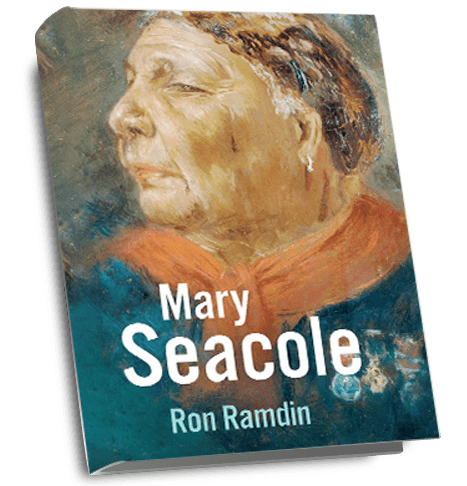Caring for the Nation: The minority ethnic contribution to nursing and midwifery

Foreword from Ruth May, Chief Nursing Officer for England, and Trevor Sterling, Chair of the MARY SEACOLE TRUST
Welcome to this celebration of the contribution that nurses and midwives from minority ethnic backgrounds have made to the NHS. When the World Health Organization designated 2020 the International Year of the Nurse and the Midwife, no one could have predicted just how much the world would demand of all its nurses and midwives as we confront the terrible impact of a global pandemic.
INTERVIEWS WITH NURSES & MIDWIVES
FROM AROUND THE WORLD
In May 2019, the World Health Organization (WHO) announced that 2020 would be dedicated to nurses and midwives, providing a once in a generation opportunity to showcase these essential professions. This theme also coincided with the 200th anniversary of the birth of Florence Nightingale.
Nurses and midwives are a critical part of the healthcare workforce globally, and have been for many decades. In the UK, the global nursing and midwifery workforce existed well before the inception of the National Health Service (NHS) in 1948.
Interviews



Jacqueline Dunkley-Bent
Professor Jacqueline Dunkley-Bent OBE Chief Midwifery Officer National Maternity Safety Champion NHS England and NHS Improvement


Alpha Toledo


Dame Elizabeth Anionwu
Dame Elizabeth Nneka Anionwu DBE FRCN is a British nurse, health care administrator, lecturer, and Emeritus Professor of Nursing at University of West London.


Calvin Moorley
Professor Calvin Moorley RN PhD Chair of Diversity & Social Justice Institute of Health and Social Care/ Adult Nursing London South Bank University


Gilbert and Gilly Lee
Gilly Lee role is Queens Nurse Neighbourhood Lead Wythenshawe, Brooklands, & Northenden


Jennifer Caguioa
Jennifer Caguioa, BSN, MSc. International Recruitment and Ethnic Minorities Nurse Advisor


Laura Serrant
Regional Head of Nursing and Midwifery Health Education England, North East and Yorkshire.


Ethel Changa
SE Regional Lead for the CNO BME Advisory Group and Clinical Advisor, Clinical Workstream, National COVID-19 Vaccination Programme.


Michelle Mello
Michelle Mello, RN National Deputy Director Personalised Care, NHS England & NHS Improvement Florence Nightingale Foundation Scholar Queens Nursing Institute Fellow


Felicia Kwaku
Assistant Director of Nursing at King's College Hospital. Chair of the Chief Nursing Officer's BME Strategic Advisory Group.


Yvonne Coghill
Last role in the NHS was as Director for the Workforce Race Equality Standard and now works as a Specialist Race Advisor.


Michelle and Vicky Bateman
Michelle Bateman MSc BSc(Hons) RHV RM RN Queens Nurse, Director of Nursing, AHPs and Quality Derbyshire Community Health Services NHS Foundation Trust


Robana Hussain-Mills
Deputy Clinical Director, Nottingham City East Primary Care Network & Head of Professional Standards and Leadership for Nursing, Midwifery and AHPs, Nottingham and Nottinghamshire ICS


















